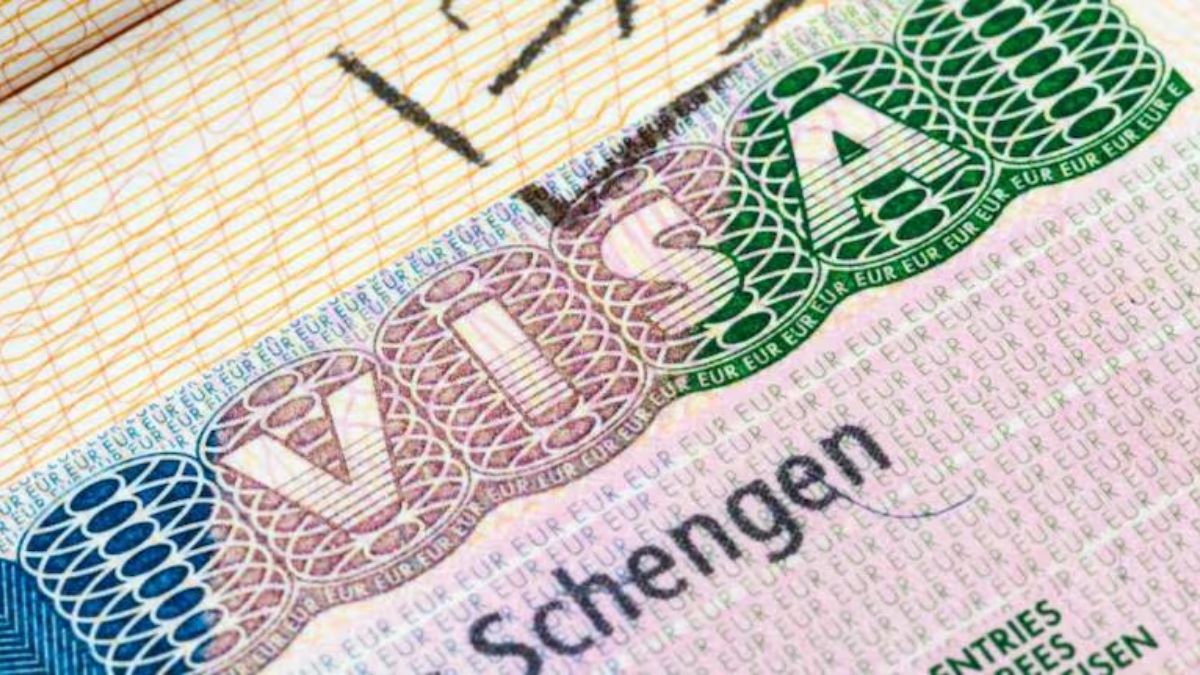Countries around the world are raking in the big bucks by rejecting visas.
The United Kingdom and Schengen countries are taking in hundreds of millions in fees.
Data from the Lago Collective showed that rejected visa application fees, known as ‘reverse remittances’, netted EU nations and the UK nearly $200 million last year.
A Schengen visa is a type of visa that allows its holder to travel freely within the Schengen area, which is a zone comprising 27 European countries that have abolished passport and other types of border controls at their mutual borders.
The Schengen visa is typically issued for short stays of up to 90 days within a 180-day period for tourism, business or family visits. It is a uniform visa that facilitates easier travel between these countries without the need for multiple visas.
Let’s take a closer look at how these countries are making moolah:
According to Euro Observer, the EU earned $139 million from Schengen visa rejections in 2023.
Schengen visa rejections brought in $113 million in 2022, the data compiled by Marta Foresti and Otho Mantegazza at Lago Collective showed.
Meanwhile, the UK made $56 million in rejected fees last year.
The fees are non-refundable.
This will likely increase in 2024 given that the visa application fee to travel to the EU is rising from €80 to €90 for adults on 11 June.
For children aged six to 12, the cost will be 45 euros, an increase of 5 euros. There are no charges for children under six.
The above figures do not take into account the expense of being unable to travel for business and leisure, or bills for legal advice and private agencies involved in processing visa applications.
Impact Shorts
More ShortsNinety per cent of the fees for rejected Schengen visas come from African and Asian nations.
Low and middle-income nations have the highest rejection rates for short-term visas for Europe and the UK.
African nations are most affected with Ghana, Senegal and Nigeria having rejection rates as high as 40 to 50 per cent.
Most visa applications for the EU are made by people from Morocco and Algeria, as per Euro Observer.
Pakistanis alone spent $5.7 million on UK applications that were rejected, as per Dawn.
Around 40 per cent of applications from Pakistan were rejected last year.
Around half of Schengen visas from Pakistan were also rejected.
Pakistanis spent $3.5 million spent on Schengen visa applications.
What do experts say?
“Visa inequality has very tangible consequences and the world’s poorest pay the price,” Marta Foresti, founder of Lago Collective told EU Observer.
“You can think of the costs of rejected visas as ‘reverse remittances’, money flowing from poor to rich countries. We never hear about these costs when discussing aid or migration, it is time to change that,” she added.
“The rejection rate for short-term visa applications from Pakistan is very high, at approximately 40pc for both Schengen countries and the UK, resulting in very significant costs for all involved. This is surprising given the multiple ties between Pakistan, Europe and the UK.
“Yet the challenges faced by Pakistani nationals to reach Europe through legal means became tragically clear a year ago when hundreds died in the Greece boat capsize. People have no choice but to resort to dangerous journeys,” Foresti added.
Foresti in a blog last year noted, “Visas regimes are not equal or reciprocal. An Italian national can obtain a visa to Sierra Leone on arrival for £30. A Sierra Leonean wishing to travel to Italy for a business meeting must undertake two separate trips to the Italian Consulate in Abidjan, Cote d’Ivoire, over several weeks at eye-watering costs.”
Dawn quoted Lago Collective as saying in a statement, “These costs are just the tip of the iceberg: in most cases, applicants pay more than the basic application fee, with private agencies involved in processing visa applications and brokers providing additional services along the way. The costs of not being able to travel for business and leisure also results into significant losses for all those involved.”
With inputs from agencies
)